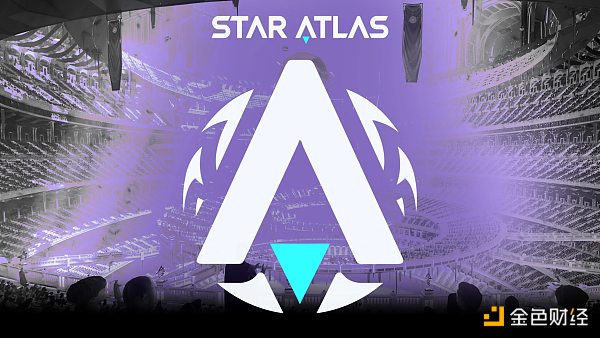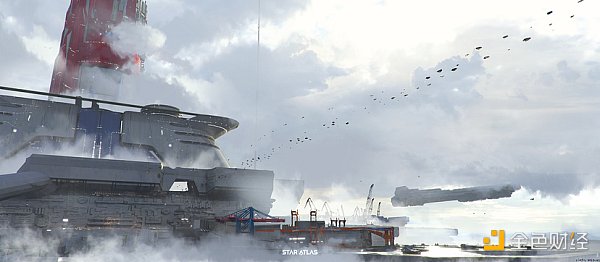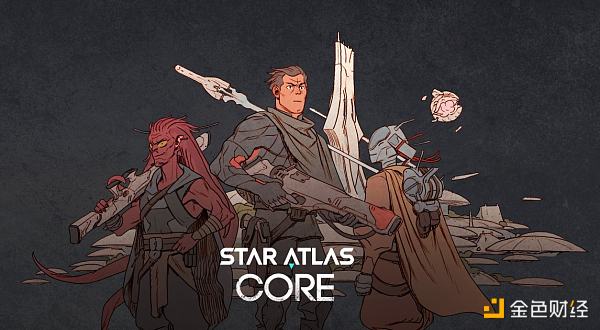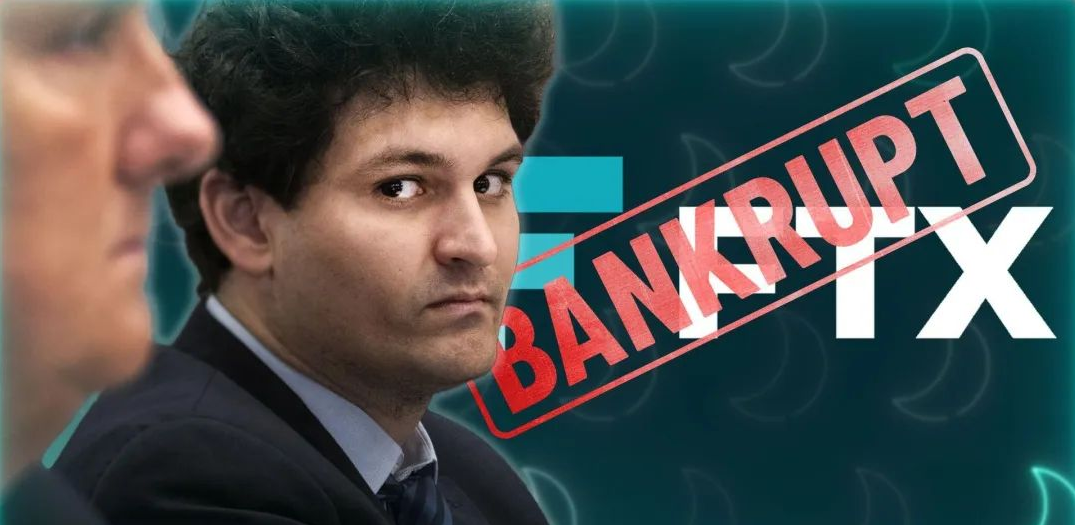After a massive layoff of 73%, will the 3A blockbuster Star Atlas, which was born in a bull market, still be launched as scheduled?
Will the 3A blockbuster Star Atlas, launched in a bull market, still be launched as scheduled after a 73% layoff?Author: Zen, LianGuaiNews
Recently, ATMTA, the development company of the 3A chain game Star Atlas in the Solana ecosystem, announced a significant layoff, including full-time employees and contractors from the invited cooperative studios for game development. The total number of team members was reduced from 167 to 45, with a layoff ratio as high as 73%.
Michael Wagner, co-founder and CEO of ATMTA, stated that they have re-evaluated their budget and development needs to ensure the maintenance of their infrastructure. He also mentioned that this is ultimately a process of “identifying key personnel who will enable us to achieve our long-term vision and continue building various product lines that we are developing.”
- Exploring the issue of chain nativity bias Is ZK really suitable for transactions?
- How did Futureverse build an AI metaverse with a financing of 54 million US dollars?
- Don’t worry! Withdrawing 1 million U safely is very simple!

However, Wagner also admitted that the downsizing of the team may affect game development. After this layoff, the joint development activities between ATMTA and cooperative studios will be greatly reduced, and their flagship product line, the Unreal Engine team, will undoubtedly be most affected. Considering that according to ATMTA’s original plan, it will take another 4 to 6 years to launch the full version of Star Atlas, this large-scale layoff may extend the development cycle, and even worse scenarios cannot be ruled out.
Born in a bull market and highly regarded, half of the funds were lost in FTX
Due to the long development cycle of 3A games, which usually takes at least 3 to 5 years and requires massive funds and resources, it is common for development teams to terminate projects and disband related teams in order to cut losses in a timely manner. For example, at the end of last year, the domestic game giant miHoYo disbanded the 3A game Project SH, which was also developed using the Unreal Engine. Project SH is a shooting game set in a two-dimensional open world. It was initially announced in 2019 and led by the founder of miHoYo and the producer of “Genshin Impact”. However, due to the project’s progress not meeting expectations, it was forced to terminate, and even until the disbandment, not much information was revealed to the public.
Star Atlas was able to attract widespread attention initially because its space theme aligned with the emerging concept of metaverse at that time. The high-quality trailer with a movie-like feel and the grand world-building also made it stand out among the relatively rough chain games. Thanks to blockchain and NFT technology, Star Atlas was able to raise funds through token and NFT sales before the game was released. It has currently launched a game-centered NFT trading market called the Galactic Marketplace and an online game based on Star Atlas, realizing a model of earning money while developing.

As a project launched only during the crypto bull market in 2020, Star Atlas clearly cannot compete with the major players in the traditional gaming industry in terms of funding support and development technology. It initially completed its seed round of financing under the leadership of Serum, a DeFi project in the Solana ecosystem, and later raised more than $10 million from institutions such as PetRock Capital, Animoca Brands, and Alameda Research. However, after the FTX collapse in November last year, ATMTA, which had a large exposure on the exchange platform, lost $16 million, accounting for about half of the company’s funds. When FTX suspended withdrawals, these funds became unavailable. After that, ATMTA partially recovered the lost funds by selling the debt to some investment funds.
In the context of a long bear market, ATMTA, which has suffered heavy losses on FTX, is still able to generate some income each month, but the money they earn is no longer enough to cover the team’s monthly expenses of millions of dollars. Wagner claimed last year that this game would cost nearly $200 million just for NFTs, but its current scale is far from that. Regarding layoffs and the future development of Star Atlas, Wagner recently stated that ATMTA will focus on upcoming products, which may bring attractiveness and increase revenue to Star Atlas, thus driving its long-term goals.
There has always been controversy surrounding the operation of Star Atlas, which promises players long-term benefits. Kieran Warwick, co-founder of the blockchain game Illuvium, questioned the sustainability of the project last year, stating on Twitter that Star Atlas will “completely destroy the retail industry.” Warwick compared Star Atlas to Star Citizen, a non-blockchain game with a similar space theme that combines combat, world-building, and commerce, providing gamers with an unprecedented sensory experience of flying through the vast universe and engaging in interstellar warfare. As of last year, Star Citizen has raised a cumulative total of $500 million through crowdfunding and has a large development team. After more than a decade of development, the game is still in the alpha stage, and the single-player mode “Squadron 42” has been delayed multiple times, from the fourth quarter of 2020 to the present.
Staying in the Solana Ecosystem
Currently, Star Atlas faces challenges that are common in the industry. The Solana blockchain on which the game is built also faces many challenges: many games and NFT projects have left the ecosystem, and some original Solana-exclusive blockchain games are seeking to expand to other blockchains.

However, the close relationship between ATMTA and Solana remains unchanged. Wagner said, “We have always supported and will continue to support Solana and its innovations. I sincerely believe that the work we are doing based on on-chain game logic can only be achieved on networks like Solana.” F-KIT, developed by ATMTA, is a toolkit created to improve the efficiency of Solana game development. It quickly and easily connects players to the Solana blockchain from within the Unreal Engine 5, and provides developers with UI blueprints and visual coding capabilities for integration with any Solana program.
Although ATMTA is reducing its workforce, Wagner says the team is still moving forward and plans to rebuild the Unreal Engine team in a timely manner. In other words, the long-term goals have not changed, but the Star Atlas team is changing direction in the difficult crypto market and financial setbacks. “We will not stop developing the Unreal Engine,” he said. “Our vision remains unchanged. We are just readjusting the priority of our work, focusing on things that can be repeated more easily, and using this to expand our user base and generate more significant revenue.”
“When we launched this product in January 2021, we had nothing but a whitepaper and a dream.” In the face of recent setbacks, Wagner wants to emphasize that the company is continuously moving forward, building products, and preserving the vision of turning Star Atlas into reality.
We will continue to update Blocking; if you have any questions or suggestions, please contact us!
Was this article helpful?
93 out of 132 found this helpful
Related articles
- Raising $54 million in funding, how does Futureverse build an AI metaverse?
- Token Incentives in Intent How to Transform Loyal Users into Owners?
- Data Insights 6 Key Metrics Comparison of On-Chain Derivatives Protocols
- What can cryptocurrencies learn from traditional finance?
- Behind the addition of FDUSD to the Binance stablecoin family, what secrets are there?
- Messari BNB Chain Q3 2023 Performance Analysis
- Interpreting the updates of GNS and their impact on users






